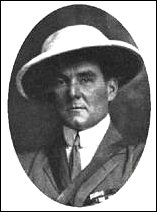Another good article in the NYT to start the week. It seems the marketing savvy have reinvented the "Burma Shave" advertising campaign for a web-based multimedia generation. The lure for this 21-century version is the opportunity to search for obscure clues as an active participant in an alternative-reality game, which also doubles as a guerilla marketing tool:
The first advertisement appeared in USA Today a week ago, right on schedule.
People from around the world had stayed up all night waiting for it, talking in chat rooms and online forums. It had to be a clue, they thought. Everything before it had been a clue.
"LOST. The Cube," read the ad, posted at the top of the paper's "Notices" section. "Reward Offered. Not only an object of great significance to the city but also a technological wonder."
The cryptic notice, along with several subsequent ads in The New York Sun, The Times of London and Monday's Sydney Daily Telegraph, are the first tangible signs of a mystery called "Perplex City" beginning to unfold online.
It is the latest well-funded entry in a young medium called "alternate-reality gaming"--an obsession-inspiring genre that blends real-life treasure hunting, interactive storytelling, video games and online community and may, incidentally, be one of the most powerful guerrilla marketing mechanisms ever invented.
These games are intensely complicated series of puzzles involving coded Web sites, real-world clues like the newspaper advertisements, phone calls in the middle of the night from game characters and more. That blend of real-world activities and a dramatic storyline has proven irresistible to many.
Subscribe to:
Post Comments (Atom)

No comments:
Post a Comment